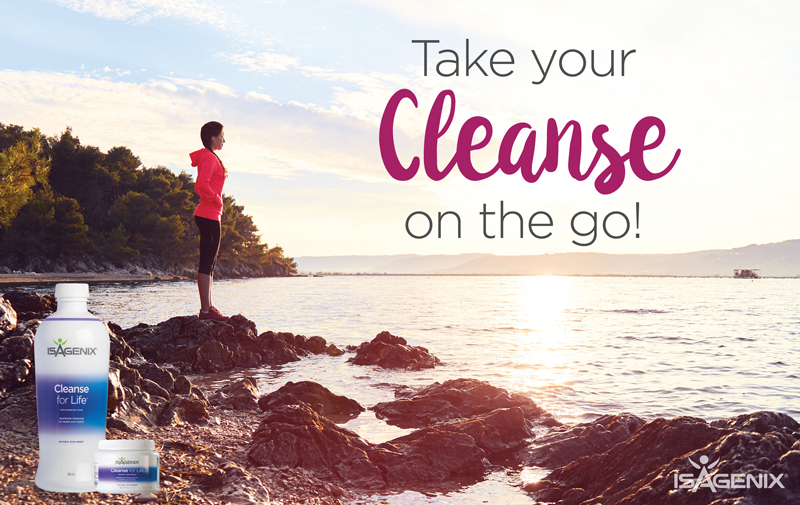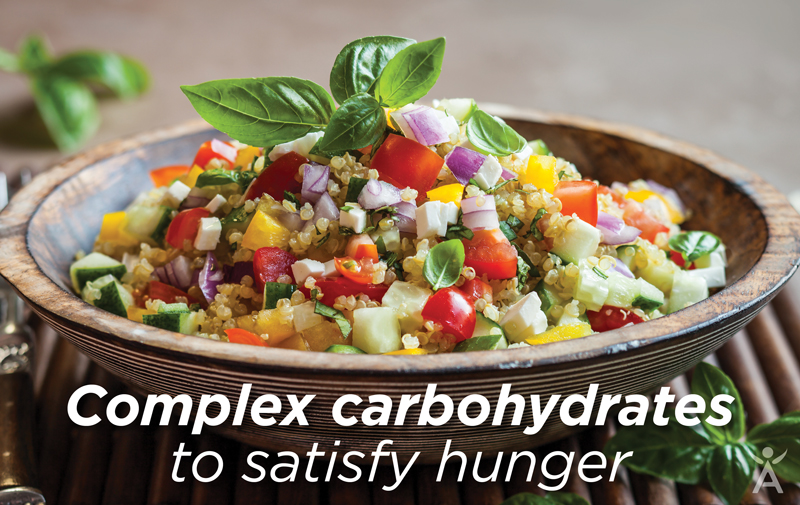 If you want a sports drink that promotes coordination, prioritises recovery, puts your mind at ease and pumps up energy, Isagenix® Want More Energy?™ is the drink for you. Want More Energy? is fit for any occasion – appropriate for sipping, a good source of vitamins, a nice touch to a tired afternoon – but the formulation is certainly primed for fitness. Want More Energy? is free of artificial ingredients, flavour enhancers and sweeteners and did we mention it tastes wonderful?
If you want a sports drink that promotes coordination, prioritises recovery, puts your mind at ease and pumps up energy, Isagenix® Want More Energy?™ is the drink for you. Want More Energy? is fit for any occasion – appropriate for sipping, a good source of vitamins, a nice touch to a tired afternoon – but the formulation is certainly primed for fitness. Want More Energy? is free of artificial ingredients, flavour enhancers and sweeteners and did we mention it tastes wonderful?
Water your energy
Looking for an energy boost? By popular demand, many workout supplements are riddled with heavy doses of caffeine, sugar and artificial stimulants. Unfortunately, it is your health that pays the surcharge on this superficial excitement. Rather than bogging the body down with foreign substances that may bind to or even oppose your brain receptors, we suggest Want More Energy? for an easier, more natural possibility for powering-up.
Water! Plain water could lift you from lethargy to lively. Researchers from the University of Connecticut found that nearly insensible water loss (approximately 2 percent) depresses mood and impairs concentration in healthy women (1). Proper hydration will fight fatigue and provide a natural way to reboot. To tease your taste buds, add Want More Energy? to an alkalising glass of water. The combination is sure to cause craving for hydrating. Whether you’re joining a pick-up game, battling against summer sun, or fending off a noon time nap – balanced vitamins, minerals and a shot of water are sure to activate your energy.
Refuel with fructose
No competitive athlete is likely to advise against carbohydrates. The primary fuel source for the brain, the blood cells and muscle, carbohydrates promote focus, aerobic activity and muscle strength. Keeping your workout from short circuiting, the body stores carbohydrates for easy access when we need them most.
 Glycogen (the storage form of sugar) is found mostly in the muscle and liver. When muscle and liver glycogen is depleted (perhaps during distance running), fatigue will set in and the body will slow down.
Glycogen (the storage form of sugar) is found mostly in the muscle and liver. When muscle and liver glycogen is depleted (perhaps during distance running), fatigue will set in and the body will slow down.
The questions are: what sugar and what dosage is most effective for your workout? What will replenish your glycogen the fastest? What will give you fuel without spiking your blood sugar?
Fructose has spent a long time out of the lime light, but this plant-based sugar is ideal to replenish liver and muscle glycogen. Researchers at the Nestle Researcher Institute found that a beverage with fructose will replenish liver glycogen more efficiently than glucose (2). Whether there is an hour between rounds, or a night between races, optimal performance follows an optimal strategy for recovery.
Adding on to glycogen, fructose has also been confirmed as a low-glycemic sugar (3). Metabolised a little differently than glucose, fructose is less likely to surge into the blood stream and more likely to restock energy stores. Avoiding sugar spikes enables you to sustain high levels of energy without crashing later. Isagenix Want More Energy? has 7 grams of natural fructose to sustain exercise, replenish glycogen and balance blood sugar. Isn’t that sweet!
Supplement C
In addition to being the poster-child for antioxidant vitamins, vitamin C is a star for sustaining a workout. Exercise is hard, that is the point. But it does not have to feel that way. As you may have heard, vitamin C supplements can make exercise more enjoyable and they may even undo the feelings of difficulty. How can this be?
Researchers at Arizona State University found that supplementing with vitamin C reduces heart rate and the perceived burden of strenuous exercise (4). For many, physical activity is a discipline. Conquering the mind and morphing the perception of exertion to enjoyment can play a part in the physically gratifying process. In this perhaps strange reaction, vitamin C serves as a catalyst. Confirmed by the research, vitamin C lowers perception of effort, allowing you to go the same distance while the mental anguish takes a hike.
B vitamins for brain
The B vitamins are essential for energetic activity and are used to make red blood cells. Without these essential-for-life vitamins, oxygen would have a hard time getting around the body. Also playing a part in the breakdown of carbohydrate and fat, the B vitamins follow a metabolic mandate. Burning up fuel and courting oxygen, they act seamlessly in the work behind a workout. Abundant in the diet, the necessity of B vitamins is more easily noticed when absent. So why include them in a workout drink? Again, the real benefit goes straight to the brain.
Research has shown that thiamin (vitamin B1), vitamin B6 and vitamin B12 support serotonin production, a neurotransmitter that regulates mood. This dynamic trio has been shown to improve fine motor skills, perhaps due to an increased release of serotonin (5). It may seem counter-intuitive from these energy-mobilising vitamins, but serotonin helps reduce mental agitation and promotes focus. Rev up your metabolism and calm down your mind? Isagenix believes this is a delightful combination for staying light on your feet.
Confident in choline
Speaking of neurotransmitters, choline is a precursor to the famed acetylcholine. Acetylcholine helps signals movement between your nerves and muscles. In one study, researchers found that plasma choline dropped by 40 percent in marathon runners (6). Because acetylcholine bridges the mind and the muscles, many researchers believe that lower levels of choline will translate to lower performance. Incidentally, supplementing with choline may oppose the exercise-induced drop in circulation. Opening your mind to choline may just open up the channels for signal conduction.
Don’t endanger electrolytes
Exercise makes us sweat and we lose water as well as electrolytes. Balancing your beverage is among the hardest games in athletic training. Most sports drinks will contain electrolytes because they are incredibly important for the health of any exerciser or athlete. Check the label on your sports drink to ensure that it is not opposing your hydration. Water alone will not do the trick. Electrolytes promote water absorption, support blood pressure and mediate muscle contraction and relaxation (7). If you are choosing a drink to serve your sport, pay special attention to sodium and potassium, as even small amounts will go a long way. Find your stride and sustain your activity with electrolyte balance.
Sports drinks have moved beyond just the field. A survey from Beneo unveiled that more than one-third of consumers in the U.S., Germany and the UK consume sports beverages each month – and not surprisingly, most aren’t after exercise. Moving quickly from recovery to sustained activity, most consumers in Germany and the UK choose their sports drink for a boost in energy. Most Americans choose a drink that supports mental acuity. So, with functional foods, vitamin waters and energy drinks grouped into the category of sports drinks, you may need to decide what you are aiming to achieve in your sports beverage.
If your answer is a drink that optimises hydration, sustains natural energy, fuels your muscles and eases your mind, Isagenix may have just what the trainer ordered with Want More Energy?!
References
- Armstrong LE et al. Mild Dehydration Affects Mood in Healthy Young Women. J. Nutr 2011; doi: 10.3945/jn.111.142000.
- Decombaz J, Jentjens R, Ith M et al. Fructose and Galactose Enhance Post-Exercise Human Liver Glycogen Synthesis. Med Sci Sports Exerc 2011. doi: 10.1249/MSS.0b013e318218ca5a.
- Cozma AI et al. Effect of Fructose on Glycemic Control in Diabetes: A Systematic Review and Meta-analysis of Controlled Feeding Trials. Diabetes Care 2012;35:1-10.doi: 10.2337/dc12-0073
- Huck CJ, Johnston CS, Beezhold BL, and Swan PD. Vitamin C status and perception of effort during exercise in obese adults adhering toa calorie-reduced diet. Nutrition 2012;1-4. doi:10/1016/j.nut.2012.021
- Bonke D and B Nickel. Improvement of fine motoric movement control by elevated dosages of vitamin B1, B6, and B12 in target shooting. Int J Vitam Res Suppl. 1989;30:198-204.
- Conlay LA et al. Exercise and neuromodulators: choline and acetylcholine in marathon runners. Int J Sports Med 1992;1:S141-2.
- Kreider RB et al. ISSN exercise & sport nutrition review: research & recommendatinos. J of the Int Soc of Sports Nutr. 2010;7:7.





